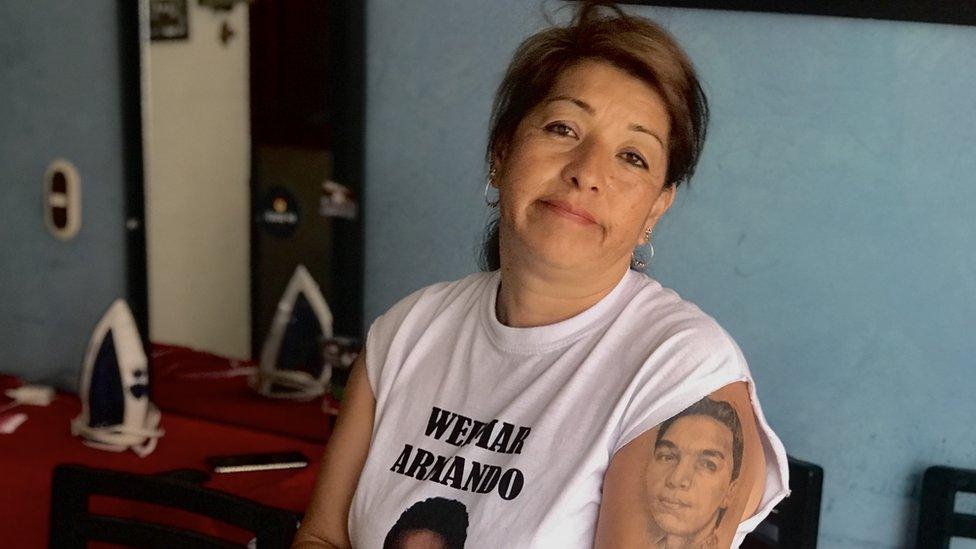Colombia Farc: Former rebels charged with war crimes
- Published
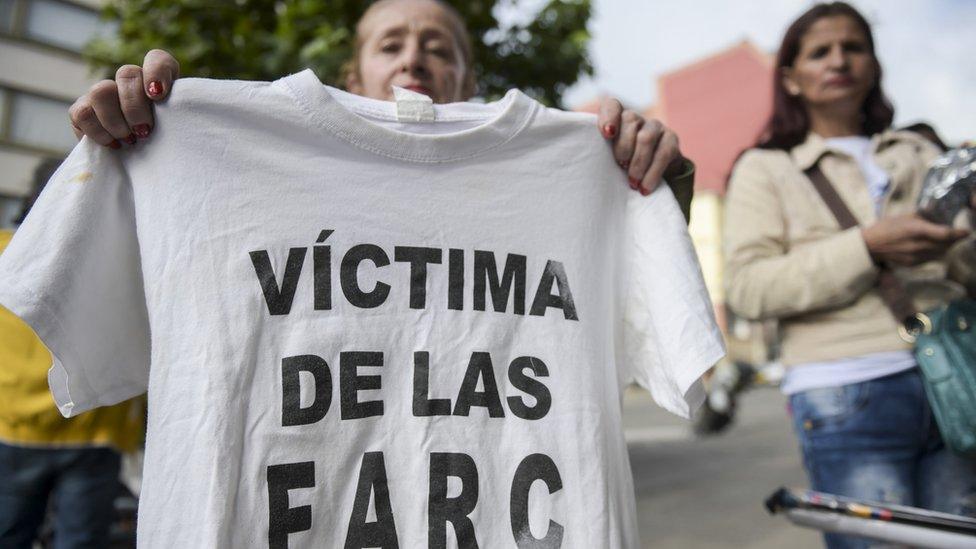
A woman holds a T-shirt reading "Victim of the Farc" during a protest in Bogota in 2018
A special court in Colombia has charged eight commanders of the former Farc rebel group with war crimes during the country's decades-long armed conflict.
They are accused of kidnapping thousands of people, and torturing and killing some of them.
It is the first major result for the court set up after the 2016 peace deal between the government and the Farc.
The group used kidnappings to fund its war against the state and to push for the release of its own personnel.
The Revolutionary Armed Forces of Colombia (Farc) demobilised to reintegrate with society after the peace accord. The conflict, which lasted more than 50 years, left more than 260,000 dead and millions displaced.
The hostages included soldiers, police officers and politicians. Some were held for years, sometimes chained to trees, and freed after ransoms were paid or they were rescued. Others were killed or died in captivity.
The indictment by the Special Jurisdiction for Peace (JEP) was based on the testimony of more than 1,000 victims and 257 ex-combatants. It said 21,396 people had been abducted between 1990 and 2016, and almost 2,000 of them were never seen again.
"Depriving people of their freedom and setting conditions for their release, as well as their wellbeing, integrity, and life, was a war crime, especially the taking of hostages," said JEP magistrate Julieta Lemaitre.
Former Farc rebels have reinvented themselves as eco-warriors to stop deforestation in the Amazon
The accused include former Farc leader Rodrigo Londoño, known by the nom de guerre Timochenko, who now heads the political party that arose from the Farc. Pablo Catatumbo and Julian Gallo, who hold two of the ten seats in Senate reserved for the party under the peace deal, were also charged.
They all have 30 days to accept or reject the accusations. The JEP offers more lenient sentences to those who admit their crimes up front.
If the former commanders accept the charges, they face restrictions on their freedom for up to eight years. If not, they could face up to 20 years in jail. Last year, former guerrilla leaders, including Timochenko, sought forgiveness for kidnappings.
John Jairo Hoyos, whose father was kidnapped by the Farc in 2002 and then murdered, hailed the "excellent decision" by the court.
"This gives me hope that... we can one day find peace, that the principle of not repeating this will be respected and that those who have been given the opportunity to re-join civilian life are fulfilling their obligations to the peace agreement," he told AFP news agency.
While most of the top Farc commanders signed the peace deal, a substantial number of former rebels opposed the accord and have formed dissident groups. They continue to engage in drug trafficking, extortion and murder in many rural parts of Colombia.
- Published3 November 2020
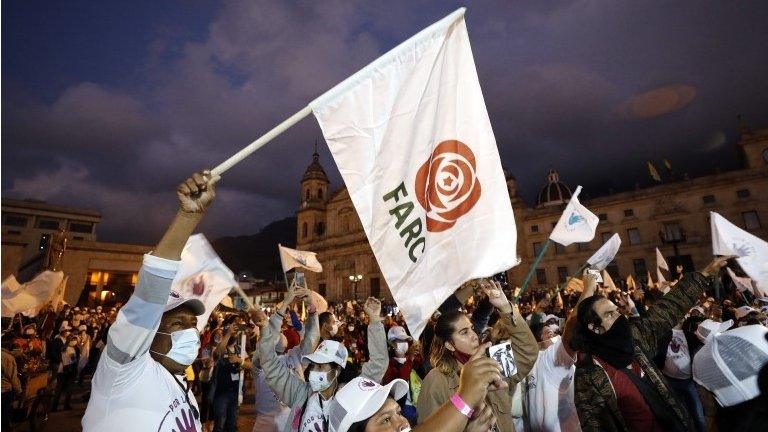
- Published11 October 2020
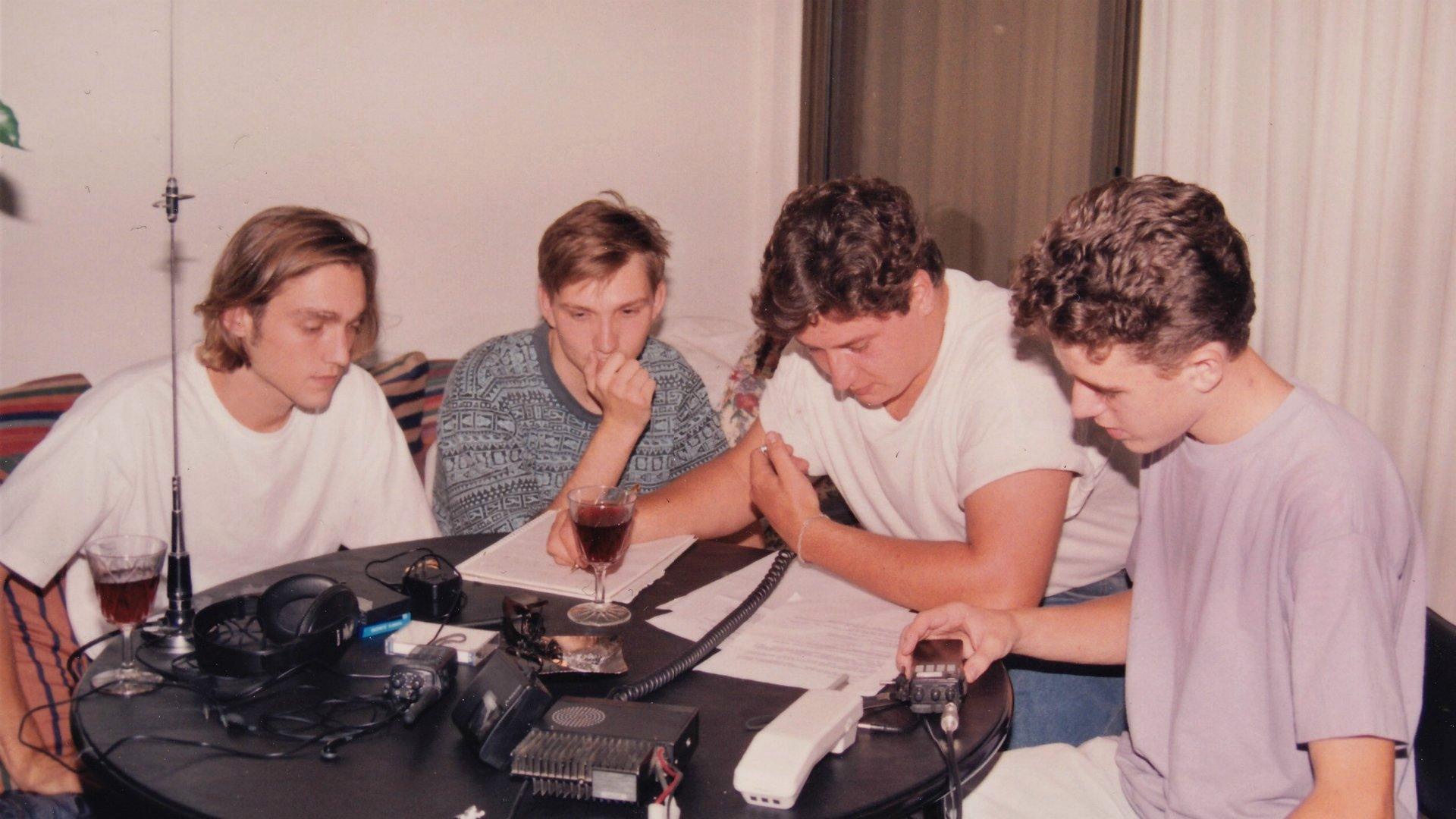
- Published15 September 2020
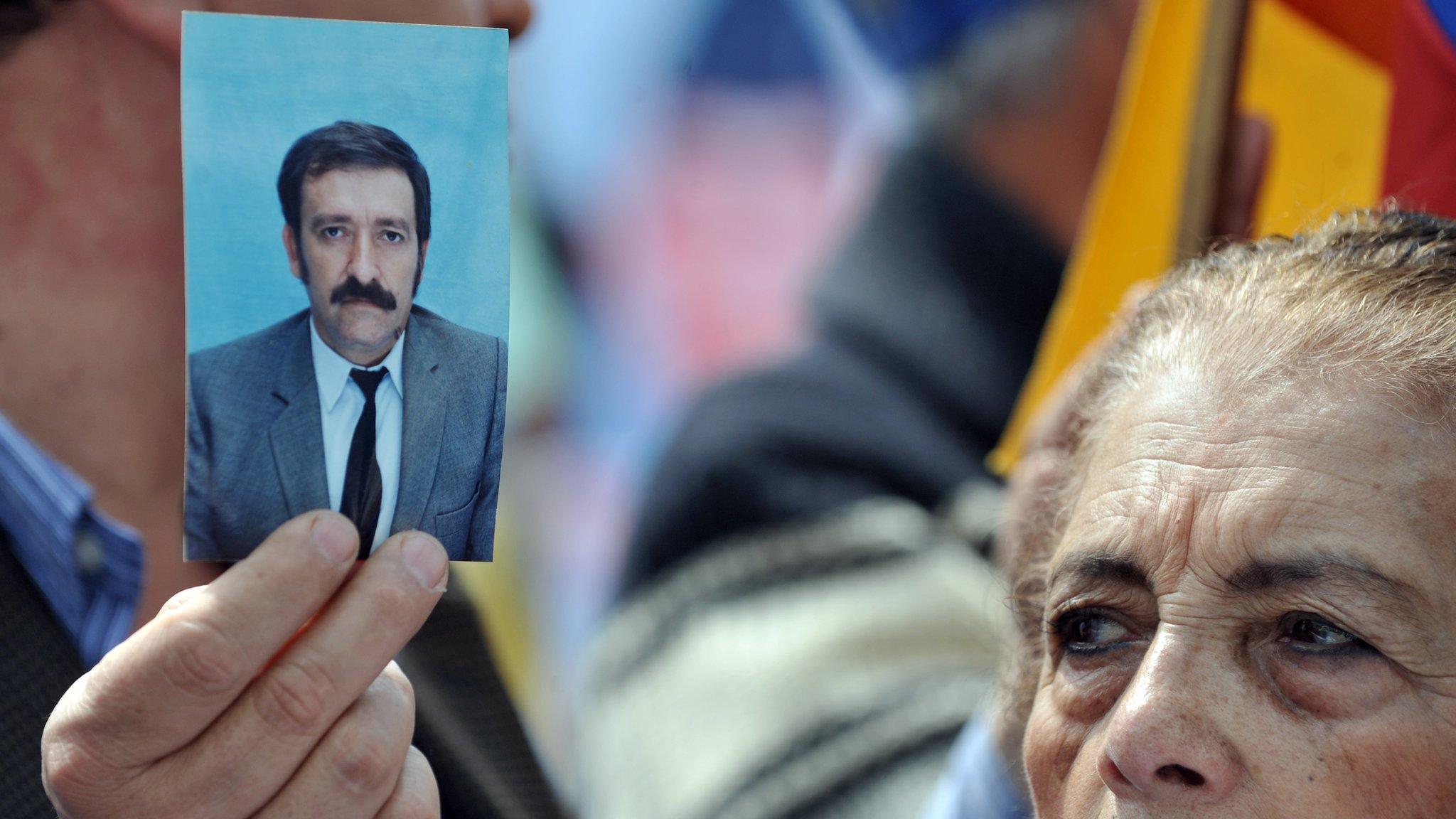
- Published23 April 2020
